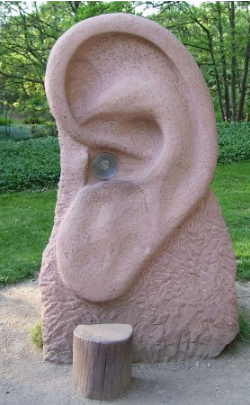Products Category
- FM Transmitter
- 0-50w 50w-1000w 2kw-10kw 10kw+
- TV Transmitter
- 0-50w 50-1kw 2kw-10kw
- FM Antenna
- TV Antenna
- Antenna Accessory
- Cable Connector Power Splitter Dummy Load
- RF Transistor
- Power Supply
- Audio Equipments
- DTV Front End Equipment
- Link System
- STL system Microwave Link system
- FM Radio
- Power Meter
- Other Products
- Special for Coronavirus
Products Tags
Fmuser Sites
- es.fmuser.net
- it.fmuser.net
- fr.fmuser.net
- de.fmuser.net
- af.fmuser.net ->Afrikaans
- sq.fmuser.net ->Albanian
- ar.fmuser.net ->Arabic
- hy.fmuser.net ->Armenian
- az.fmuser.net ->Azerbaijani
- eu.fmuser.net ->Basque
- be.fmuser.net ->Belarusian
- bg.fmuser.net ->Bulgarian
- ca.fmuser.net ->Catalan
- zh-CN.fmuser.net ->Chinese (Simplified)
- zh-TW.fmuser.net ->Chinese (Traditional)
- hr.fmuser.net ->Croatian
- cs.fmuser.net ->Czech
- da.fmuser.net ->Danish
- nl.fmuser.net ->Dutch
- et.fmuser.net ->Estonian
- tl.fmuser.net ->Filipino
- fi.fmuser.net ->Finnish
- fr.fmuser.net ->French
- gl.fmuser.net ->Galician
- ka.fmuser.net ->Georgian
- de.fmuser.net ->German
- el.fmuser.net ->Greek
- ht.fmuser.net ->Haitian Creole
- iw.fmuser.net ->Hebrew
- hi.fmuser.net ->Hindi
- hu.fmuser.net ->Hungarian
- is.fmuser.net ->Icelandic
- id.fmuser.net ->Indonesian
- ga.fmuser.net ->Irish
- it.fmuser.net ->Italian
- ja.fmuser.net ->Japanese
- ko.fmuser.net ->Korean
- lv.fmuser.net ->Latvian
- lt.fmuser.net ->Lithuanian
- mk.fmuser.net ->Macedonian
- ms.fmuser.net ->Malay
- mt.fmuser.net ->Maltese
- no.fmuser.net ->Norwegian
- fa.fmuser.net ->Persian
- pl.fmuser.net ->Polish
- pt.fmuser.net ->Portuguese
- ro.fmuser.net ->Romanian
- ru.fmuser.net ->Russian
- sr.fmuser.net ->Serbian
- sk.fmuser.net ->Slovak
- sl.fmuser.net ->Slovenian
- es.fmuser.net ->Spanish
- sw.fmuser.net ->Swahili
- sv.fmuser.net ->Swedish
- th.fmuser.net ->Thai
- tr.fmuser.net ->Turkish
- uk.fmuser.net ->Ukrainian
- ur.fmuser.net ->Urdu
- vi.fmuser.net ->Vietnamese
- cy.fmuser.net ->Welsh
- yi.fmuser.net ->Yiddish
How To Listen: Part 3 — Analytical and Critical Listening
Date:2020/3/6 11:50:36 Hits:

In part one of this series, we went through the concept of listening as a player, sitting in with a band for the first time, and what goes into that. In part two, we went through different aspects of ear-training. In this third installment, we will get into two different types of listening and some ideas on how to do both.
Analytical Listening
The word “analytical” is defined as “using or skilled in using analysis”. What that means in terms of music is that there is more to music than just the sounds. There is also the meaning and the purpose of the music. A composer or songwriter always has a meaning or emotion they are trying to get across. It could be happy, sad, angry, loving, or something crazy. There really is an endless array of subjects and emotions to write about. If the writer can get the song or piece of music where they want it as far as the meaning is concerned, then it comes to the point of marrying the song with the right sounds and vibe to really convey what the writer intended.
I have a great exercise for analytical listening that I will get to at the end of this article but for now, the next time you listen to a song, really see if you can feel what the song is all about. That goes for instrumentals as well as vocal tunes. If the players and producer have done their jobs then an instrumental song can definitely have a lot of emotion.
Critical Listening
There are a number of different definitions for the word “critical,” but the one that best describes the use of the word in music is “characterized by careful evaluation and judgment.” In other words, getting into the details. This is where you zone in on things like the overall EQ of a recording, how much reverb is on the vocal, how the drums are panned, and everything else going on in any particular piece of music. This activity can really be a lot of fun. Especially if you haven’t done it in a while.
Recording engineers use critical listening in their jobs every day. It is hugely important that they do, because they need to know how to get the very best sound out of instruments, people, and recording equipment. An engineer without a good pair of ears can ruin a composer’s or songwriter’s vision.
Exercises
In order to really get the most out of these exercises you need a few things:
1. A good pair of headphones like the Audio-Technica ATH-M50x (my personal favorites) or the AKG K 240 MK II Pro Studio Headphones. A good pair of headphones should be like your favorite pair of slippers. There is a wide variety to choose from and once you find your favorite they will be your go-to monitors for all kinds of things. Yes you can do these exercises with iPod-style ear buds, but it is not the same. If you want to go the in-ear route, then I suggest that you go for a quality pair with good drivers such as the Bose SoundTrue In-ear Headphones or the Shure SE425-CL.
2. A listening area where you will not be bothered and that is free from outside noise. Getting into serious critical or analytical listening in a noisy park or a busy shared room is not really optimal for this exercise; find a quiet place.
3. A notepad and something to write with.
4. Time. You need to have time to really get the most out of these exercises. I suggest you plan for a minimum of 15 minutes and up to the length of a full record.
Exercise 1:
Pull up one of your favorite songs, sit down in that quiet and noise-free place you found, and listen. Write down everything you hear and feel — and I mean everything. How does the song sound? Is it harsh, clean, or muddy? Is there ambience on the drums like they are in a big hall or are they dry like in a small room? Is the bass player playing with a pick or with his fingers? How many guitar parts can you make out? If it is a vocal tune, what is the singer trying to convey? Do you feel the emotion from the vocal performance, do you believe what the person is singing about?
There are many more details you can search out but I just want to give you a few to get you going. The point is to try and hear everything that is going on. One way to try is to listen down to the song and only concentrate on one instrument; such as only listening to the bass part for the whole song. Really get into the groove, the tone, and the vibe. You can do that with every instrument and part you hear.
Exercise 2:
This exercise encompasses a lot of the same things from exercise number one except it takes more time. When was the last time to listened to an entire record or CD? When I was a kid I did that a lot and as life went on I found that this activity got harder and harder to do. That is why I started this article out the way I did. It can be hard to find the time, but really, when you think about it, a whole CD these days is about one hour long. You can waste an hour without even thinking about it so do whatever you can to schedule in time for this. It is a super-fun activity and you will learn so much from doing it.
The key to this exercise is to listen to a record from the beginning to the end. When bands, artists, or producers put a record together they think long and hard about the flow and how each song relates to the others. Think about it like you are watching a movie that you cannot see. Just sit back and listen. See how you feel at the end. Did you get taken on a journey? A good record can easily do that and you’ll be amazed how many gems you will find in doing this exercise.
Wrap up
Training your ears and your brain is essential in being a great musician, artist, songwriter, composer, engineer, or producer. Find the time to listen, really in-depth listening, and you will see definite improvements in all of your musical activities.
Leave a message
Message List
Comments Loading...





